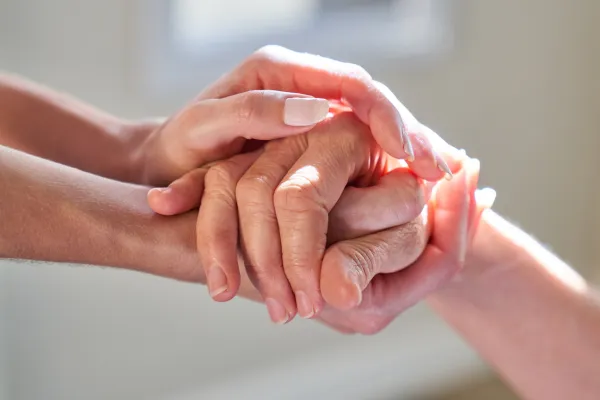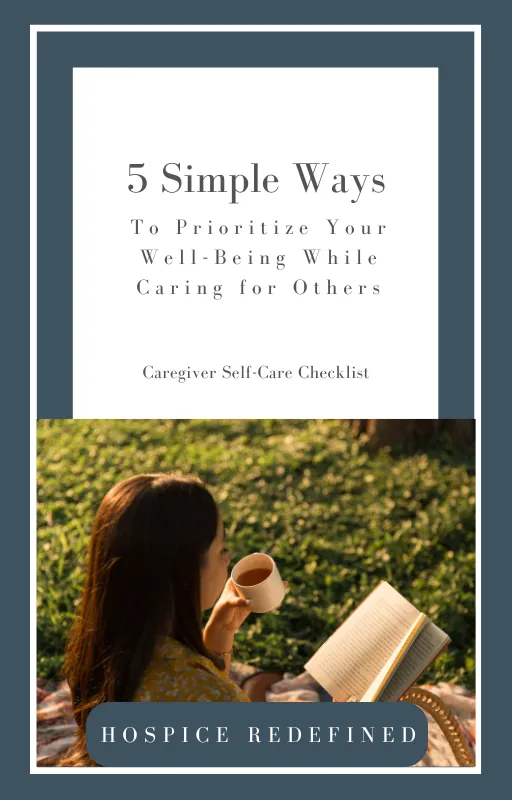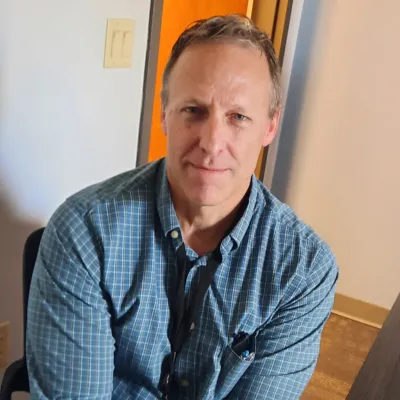
Redefined
Hospice
Your Guide to Understanding Hospice With Clarity and Compassion

Hospice
Redefined
Your Guide to Understanding Hospice With Clarity and Compassion

Not Just a Patient: How Trauma-Informed Care Helps Us See the Whole Person
“Just because someone is sick or dying doesn’t mean they’re a different person. We have to remember who they were—what they loved, who they’ve always been—because that identity still matters.”
🎧 Listen on Apple Podcasts | Listen on Spotify
Not Just a Patient: How Trauma-Informed Care Helps Us See the Whole Person
In the world of caregiving—especially hospice—there's a tendency to focus on diagnoses, treatment plans, and the inevitable end. But in doing so, we can unintentionally lose sight of something essential: the person behind the illness.
This episode of Hospice Redefined is a powerful reminder of that truth. I sat down with Kate Zuraw, LICSW, an expert in trauma-informed care and a social worker with over a decade of experience across medical, psychiatric, and community settings. Together, we explored how past experiences shape the way people respond to illness, and how we as caregivers—both professionals and loved ones—can better honor the humanity of those we're walking alongside.

Trauma Is More Than an Event—It’s an Imprint
Kate defines trauma simply: a distressing experience that overwhelms a person’s sense of safety, control, or security. It’s not just an emotional response—it can actually live in the body and alter brain development, especially if the trauma was early or ongoing.
Trauma doesn't have to be a dramatic event to have an impact. It can be the result of:
A serious diagnosis
A car accident
The death of a loved one
Even a move, job loss, or difficult life transition
What matters is how the experience was felt. Two people can live through the same event, and only one may carry it as trauma. That’s why it’s so important not to assume, not to judge—and always lead with compassion.
Why Trauma-Informed Care Matters in Hospice
In hospice, we’re often entering someone’s life during a deeply vulnerable time. Kate shared something profound: “I assume everyone I meet has experienced trauma. It’s safer—and more compassionate—to do so.”
Trauma-informed care means:
Understanding how someone’s past affects their current behavior
Offering choice and collaboration instead of directives
Providing physical and emotional safety
Supporting the person, not just treating the condition
And maybe most importantly: asking who they were before the diagnosis.
That core identity doesn’t disappear just because someone is ill. Too often, patients become defined by their illness. But behind the symptoms is a person with a story, preferences, passions, and dreams. When we take the time to see them as whole, to ask what they still love, what matters most to them—we not only provide better care, we help them reconnect to themselves.
Resistance Is Often a Form of Protection
Let’s talk about a word I truly dislike in healthcare: noncompliance. It’s a red flag that tells me something deeper is going on.
What looks like resistance—refusing medication, declining a walker, rejecting a hospital bed—may actually be a trauma response or a desperate grasp for control in a situation where so much autonomy has been lost.
As Kate explained, “Saying no might be the only power someone has left.”
Instead of labeling, let’s be curious:
“What does the walker represent to you?”
“What would it mean to have a hospital bed in the room?”
“How can we make this feel like your choice, not something being done to you?”
These conversations are hard—but they matter. They shift the focus from control to collaboration, and they help preserve dignity in a time that can feel incredibly powerless.
Compassion Begins With Us
An important part of trauma-informed caregiving that’s often overlooked is this: we must take care of ourselves to show up well for others.
Before entering a room, a home, or even a hard conversation, Kate encourages caregivers to pause and ask:
Am I calm?
Am I compassionate?
Am I curious?
Because if you’re overwhelmed, burned out, or emotionally reactive, you won’t be able to offer safety or presence to someone in need. You can’t pour from an empty cup.
That’s why we’ve created a free caregiver checklist—a simple tool to remind you to drink water, get fresh air, breathe deeply, and come back to your center. You can download it here.
Preserving Identity in the Final Chapter
As we care for someone approaching the end of life, it’s easy to let the “what’s next” overshadow the “who they are.” But we can change that—by asking simple, meaningful questions:
“What did you love to do before all this?”
“What still brings you joy?”
“Tell me about your dad. What was he like before he got sick?”
These conversations lift the heaviness for a moment. They reconnect families. And they remind all of us that life—right up until the very end—is worth honoring.
Final Thoughts
Trauma-informed care isn’t just for the hospice setting. It’s for every human interaction. Whether you’re a nurse, a family caregiver, or a friend—start with curiosity. Lead with compassion. And remember that even the smallest gestures of choice and understanding can be a lifeline for someone feeling overwhelmed or unseen.
To learn more from Kate, visit her Instagram @liminialresilience, where she shares beautifully about building strength in life’s in-between moments.
And if you haven’t already, listen to Episode 3 for tangible self-care tips to help you stay grounded through the demands of caregiving.
We see you. We hear you. And we’re so glad you’re part of this community.
💛 Want More Support?
Visit HospiceRedefined.com to grab your free Caregiver Self-Care Checklist—a PDF you can print and put on your fridge to remind you of the small things that make a big difference.
🎧 Listen to this episode on your favorite podcast platform:
And if you found this episode helpful, please forward it to someone who needs it. Or better yet, grab your phone, press play, and sit with them while they listen.
You’re not alone. We’re so proud of you for showing up.
Until next time,
Rachel Carta, RN
Host of Hospice Redefined
Written and produced by Rachel Carta, RN, Functional Nutrition Counselor & Life Coach. This episode features an interview with Kate Zuraw, LICSW, a trauma-informed social worker, educator, and advocate with over a decade of experience in mental health, crisis intervention, and care coordination.
Listen
Episode 1:
Episode Title Goes Here
Episode 2:
Episode Title Goes Here
Episode 3:
Episode Title Goes Here
YOUR WELL-BEING MATTERS TOO
5 Simple Ways to Prioritize Your Well-Being
While Caring for Others
Click below to get instant access to the Caregiver Self-Care Checklist.


Your Host
Rachel is a hospice nurse, functional nutrition counselor, and life coach. As host of Hospice Redefined, she’s passionate about dispelling hospice misconceptions and empowering caregivers with knowledge and support. Her mission is to help families see hospice as an opportunity for comfort, dignity, and meaningful connection.
Rachel Carta, RN
HOST OF HOSPICE REDEFINED, AUTHOR, SPEAKER
SELINSGROVE, PA

Special Recurring Contributor
John is a social worker with more than 30 years of experience. He brings a wealth of knowledge, compassion, and empathy to our listeners.
John Myers, MSW
SOCIAL WORKER







